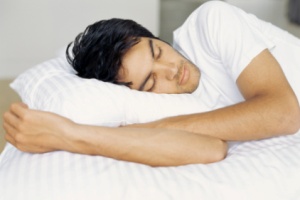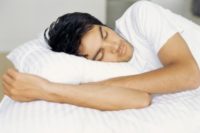 From Harvard Medical College’s e-newsletter HEALTHbeat
From Harvard Medical College’s e-newsletter HEALTHbeat
www.health.harvard.edu/healthbeat/HB_web/
People with insomnia struggle to get a good night’s rest. They may be plagued by trouble falling asleep, unwelcome awakenings during the night, or fitful sleep — alone or in combination. They may feel drowsy during the day and yet be unable to nap. Insomnia can leave a person feeling anxious and irritable or forgetful and unable to concentrate.
This common sleep problem isn’t by itself a disorder — rather it is a set of symptoms (much like fever or pain). Finding an effective solution requires uncovering the cause. Nearly half of insomnia cases stem from psychological or emotional issues. Stressful events, mild depression, or an anxiety disorder can make falling asleep and staying asleep difficult. Ideally, once the underlying cause is treated, the insomnia improves.
First-line treatment: Behavioral changes
If you are having trouble sleeping or sleeping well, the following four techniques may help.
Sleep restriction. Fight the tendency to spend a lot of time in bed with the hope of falling asleep. In reality, less time in bed promotes more restful sleep and helps make the bedroom a welcome sight instead of a torture chamber.
Reconditioning. A few simple steps can help people with insomnia to associate the bedroom with sleep instead for sleeplessness and frustration. For example, use the bed only for sleeping or sex and go to bed only when you’re sleepy. If you’re unable to sleep, move to another room and do something relaxing. Stay up until you are sleepy, and then return to bed. If sleep does not follow quickly, repeat.
Relaxation techniques. A racing or worried mind is the enemy of sleep. Sometimes physical tension is to blame. Techniques to quiet a racing mind — such as meditation, breathing exercises, progressive muscle relaxation, and biofeedback — can help.
Cognitive behavioral therapy (CBT). CBT for insomnia aims to change the negative thoughts and beliefs about sleep into positive ones. People with insomnia tend to become preoccupied with sleep and apprehensive about the consequences of poor sleep. This worry makes relaxing and falling asleep nearly impossible. The basic tenets of this therapy include setting realistic goals and learning to let go of inaccurate thoughts that can interfere with sleep.
3 simple ways to more restful sleep
Even people without insomnia can have trouble getting a good night’s rest. Many things can interfere with restorative sleep — crazy work schedules, anxiety, trouble putting down the smartphone, even what you eat and drink can compromise sleep.
The following three simple steps can help you sleep better:
Cut down on caffeine
Caffeine drinkers may find it harder to fall asleep than people who don’t drink caffeine. Once they drift off, their sleep is shorter and lighter. For some, a single cup of coffee in the morning means a sleepless night. That may be because caffeine blocks the effects of adenosine, a neurotransmitter thought to promote sleep. Caffeine can also interrupt sleep by increasing the need to urinate during the night.
People who suffer from insomnia should avoid caffeine as much as possible, since its effects can endure for many hours. Because caffeine withdrawal can cause headaches, irritability, and extreme fatigue, it may be easier to cut back gradually rather than to go cold turkey. Those who can’t or don’t want to give up caffeine should avoid it after 2 p.m., or noon if they are especially caffeine-sensitive.
Stop smoking or chewing tobacco
Nicotine is a central nervous system stimulant that can cause insomnia. This potent drug makes it harder to fall asleep because it speeds your heart rate, raises blood pressure, and stimulates fast brain wave activity that indicates wakefulness.
In people addicted to nicotine, a few hours without it is enough to induce withdrawal symptoms; the craving can even wake a smoker at night. People who kick the habit fall asleep more quickly and wake less often during the night. Sleep disturbance and daytime fatigue may occur during the initial withdrawal from nicotine, but even during this period, many former users report improvements in sleep. If you continue to use tobacco, avoid smoking or chewing it for at least one to two hours before bedtime.
Limit alcohol intake
Alcohol depresses the nervous system, so a nightcap may seem to help some people fall asleep. However, alcohol suppresses REM sleep, and the soporific effects disappear after a few hours. Drinkers have frequent awakenings and sometimes frightening dreams.
Alcohol may be responsible for up to 10% of chronic insomnia cases. Also, alcohol can worsen snoring and other sleep breathing problems, sometimes to a dangerous extent. Even one drink can make a sleep-deprived person drowsy. In an automobile, the combination significantly increases a person’s chance of having an accident.
You can also improve the amount and quality of your sleep by getting regular physical activity and creating and sticking to a regular sleep schedule and routine.


